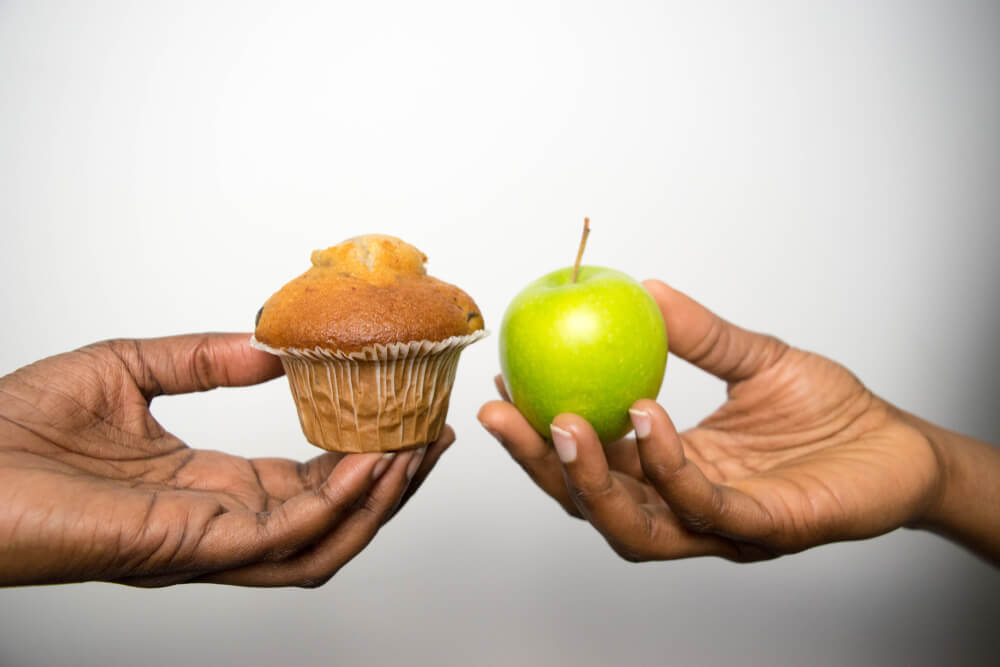Fertility problems have become a major issue in the modern world, with more than 10% of couples having to deal with this problem. Besides going to the doctor’s for medical treatments, there are natural fertility boosters that can help you get pregnant faster. Lifestyle and diet adjustments are the easiest and best ways to naturally boost fertility, but here are 15 different ways for improving your chances of getting pregnant.
The Best Ways for Boosting Fertility Naturally
Getting pregnant is one of the happiest moments in life, but when that possibility is reduced or impossible, people opt for various ways to help them conceive quicker. Consulting a fertility specialist such as someone from the office of Women’s Care of Bradenton can help you get informed and start working on boosting your fertility. If you have been trying to conceive for more than six months, contact us today and our team will perform the necessary tests and screening with the aim of providing you with proper care and treatment.
Besides consulting a specialist, you can also opt for holistic fertility treatments and take care of your fertility problem in a natural way. Some of the things you can do at home to boost your fertility and increase the chances of getting pregnant include the following:
- Eat a Big Breakfast
Eating a big and healthy breakfast has been found to help women improve fertility problems. A few studies have been conducted on this topic showing that indeed having a larger breakfast, instead of a substantial dinner, can help boost ovulation for 30%. Thanks to this, the levels of insulin can be reduced by 8% and the levels of testosterone by 50% which ultimately leads to higher chances of becoming pregnant.
- Eat Antioxidant-rich Foods
Antioxidant-rich foods can also help in improving fertility in both men and women. Thanks to antioxidants, you can naturally reduce the number of free radicals that are known to damage egg cells and sperm in your body. If you want to boost your fertility, try to include more fruits, vegetables, grains, and nuts that are naturally packed full of good antioxidants such as vitamins E and C, beta-carotene, lutein, and folate.
- Avoid Eating Trans Fats
Consuming healthy fats is the basis of every balanced diet, and if you’re trying to get pregnant you should avoid trans fats altogether. Trans fats are known to negatively impact ovulation levels. For a natural conception, it would be best if you avoided trans fast altogether and had a healthy diet.
- Choose Your Carbs Wisely
There are two important things you should be aware of when it comes to carbs – you should pay attention to the number of carbs you eat on the overall and the type of carbs you consume every day. Having a low-carb diet can help improve hormone levels in women with PCOS while avoiding refined carbs can increase your chances to get pregnant. 
- Consume High-fat Dairy Products
More than one study has been conducted that shows the connection between high-fat dairy and fertility. Studies showed that women who consumed one or two servings of high-fat dairy products have higher chances of getting pregnant than those who consumed low-fat dairy. If you’re looking for natural remedies for ovulation and infertility, replacing at least one low-fat dairy serving with a high-fat dairy one can help you achieve that.
- Use Diverse Protein Sources in Your Diet
Protein is an integral part of your diet, but you should try to consume protein sources other than meat to reduce the risk of infertility. Vegetable protein sources such as beans, seeds, and nuts have been found to improve women’s chances of becoming pregnant faster. Try to use different protein sources in your diet to help boost your fertility.
- Increase Your Fiber Intake
Fiber is generally good for everyone’s diet, but increasing your fiber intake while you’re trying to conceive may significantly improve your chances of it. The great thing about fiber is that it can help your body remove excess hormones while keeping your blood sugar levels in control.
Food that has high levels of fiber includes fruit and veggies, whole grains, and beans, so you might want to base your diet around them. Of course, try to not go overboard with fiber intake as it can have a negative effect on your ovulation and fertility.
- Try Some Multivitamin
If you think you’re not getting enough nutrients from your everyday diet, opting for some multivitamins is a good idea. Being persistent in taking your fertility and ovulation supplements can significantly improve your fertility and ovulation.
One of the most important vitamins for women who are trying to get pregnant is folate, so you can start taking it once you start planning your pregnancy, but try to include other vitamins and minerals as well to make sure you’re getting all the necessary nutrients.
- Get Physically Active
Being obese or overweight can really impact your possibilities to conceive. Besides being good for your overall health, regular and moderate exercising can help you achieve a normal weight and increase chances for pregnancy.
Try to avoid a sedentary lifestyle and include some walking or light physical activity to get your body in shape and ready for pregnancy. It’s important that you don’t exaggerate since too much exercising can have a negative impact on holistic fertility and conception.
- Maintain a Healthy Weight
Weight is one of the most relevant factors that affect fertility in both men and women. Maintaining a healthy weight is one of the best ways to help you with boosting fertility and conception.
Unhealthy weight is connected with irregular menstrual cycles which can significantly reduce the chances of becoming pregnant. Women who are either underweight or overweight will have problems conceiving so the first step towards getting pregnant should be to keep your weight under control.
- Cut Down on Caffeine Sources
One of the well-known home remedies for ovulation includes cutting down on caffeine sources on a daily level. Women who drink a lot of coffee have fewer chances of conceiving and caffeine has been shown to increase the chances of miscarriage. If you’re a coffee-lover, you don’t have to completely avoid coffee, but simply try to be moderate with your caffeine consumption.
- Avoid Drinking Alcohol
Although it’s not determined how much alcohol can affect fertility, if you and your partner are trying to have a baby, you should really try to cut down on your alcohol intake. Several studies have been conducted trying to make a connection between alcohol and infertility, however, the results are mixed. The only certain thing is that excessive alcohol consumption is bad for fertility and decreases the chances of pregnancy. 
- Reduce Stress Levels
If you have been trying to conceive for some time now, it’s possible that you feel under pressure because of it. However, stress is one of the most relevant factors for conception. Try to relax and reduce any stressors from your environment to help boost your fertility. By learning how to cope with everyday stress and anxiety you can improve your chances of getting pregnant.
- Increase Your Iron Intake
Iron intake is very important for everyone, but especially for women who are in their reproductive years. It’s paramount that you try to eat iron-rich foods such as plant-based iron food if you want to improve your ovulation and fertility. If your diet doesn’t include enough iron sources, try to find an adequate supplement as a substitute.
- Natural Fertility Supplements
Some of the best natural fertility supplements include the following:
- Bee pollen – helps improve immunity, nutrition, and fertility in men.
- Bee propolis – women who used bee propolis twice a day had higher chances of getting pregnant.
- Maca – a plant that grows in Peru has been shown to positively affect sperm levels.
- Royal jelly – packed full of lipids, vitamins, amino acids, iron, fatty acids, and calcium, it can help boost fertility.
If you’re trying to conceive and are looking for natural ways to boost fertility, you should try to lead a healthy life based on a balanced diet, moderate exercise, and avoiding stress. Consulting a fertility specialist can help you come up with a good long-term plan for boosting your fertility and conception. Our specialists can help you on your journey, each and every step of the way. Request an appointment, today!


